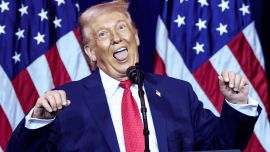The US ambassador in Brasilia warned of "consequences" if Brazil chooses Chinese telecoms company Huawei to develop its 5G network, in an interview published Wednesday.
"I wouldn't say there would be retaliation, but there would be consequences" if Brazil goes against US advice and picks the Chinese firm, Ambassador Todd Chapman told newspaper Globo.
Brazil is due to launch a tender next year for the project to develop the next generation of telecommunications technology in Latin America's most populous country, home to 212 million people.
The United States has been actively lobbying countries worldwide to boycott Huawei, arguing the firm could allow the Chinese government to spy on their data.
"At any time, the Chinese government could ask Huawei to send it information," Chapman said. "There's no purely American company in the running. I'm not saying this to make a billion dollars. It's a matter of national security."
Other companies that have shown interest in Brazil's 5G tender include Sweden's Ericsson and Finland's Nokia.
Chapman also warned Brazil could scare away foreign investment by contracting a company that the US claims violates intellectual property rights and receives unfair state support that puts its competitors at a disadvantage.
"The US position is to alert our allies and friends, such as Brazil, so they know who they're working with," he said.
Chapman said the United States was prepared to help secure funds through the International Development Finance Corporation, a US government institution, to roll out 5G "for those who buy products from reliable suppliers."
The pressure is putting President Jair Bolsonaro's government in a bind. Since taking office last year, the far-right leader has cultivated close ties with US President Donald Trump, whom he admires. But China is Brazil's biggest trading partner.
The row comes amid what many analysts are describing as a "new Cold War" between the US and China.
Britain announced earlier this month it would remove Huawei equipment from its 5G network, bowing to pressure from Washington despite warnings of retaliation from Beijing.
– TIMES/AFP





















Comments